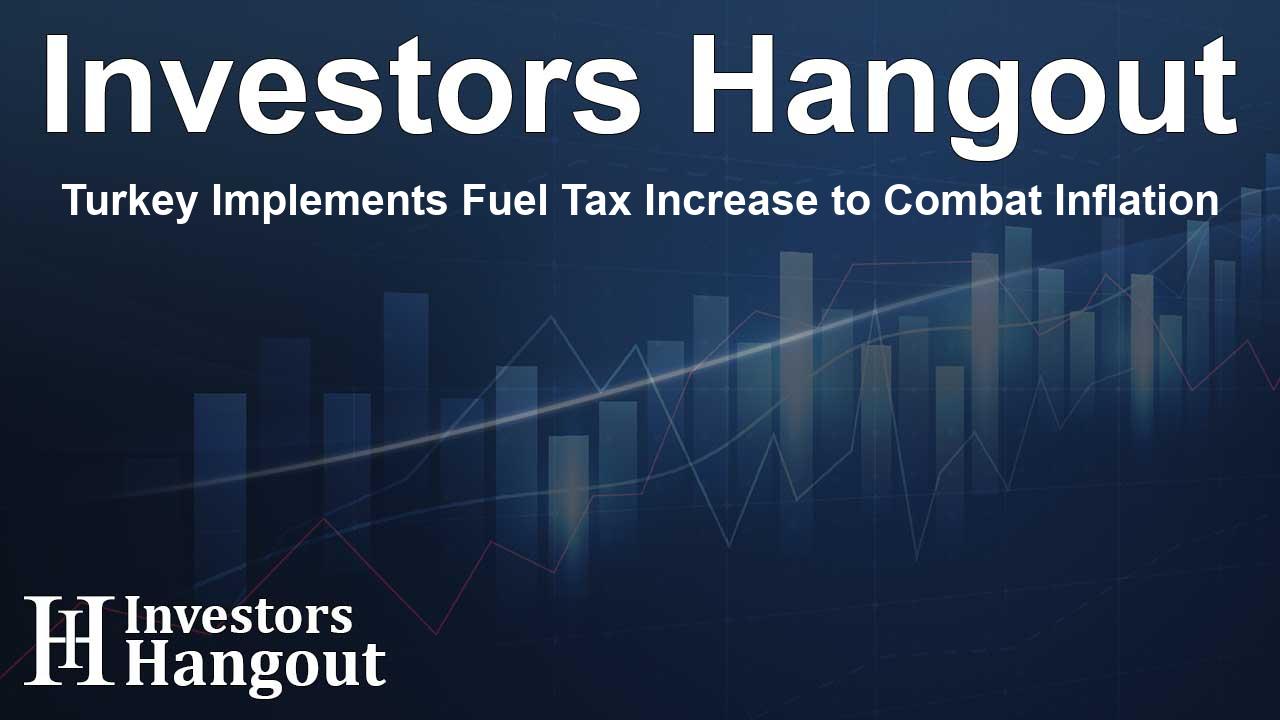Turkey Implements Fuel Tax Increase to Combat Inflation

Turkey's Fuel Tax Increase: A Strategic Move Against Inflation
In a significant economic decision, Turkey has recently announced a 6% hike in fuel taxes. This tax adjustment, which took effect following an official decree, is aimed at controlling inflation while maintaining a stable economic outlook.
Details of the Tax Adjustment
The decision comes after Turkey's finance minister addressed the nation, reassuring citizens that these tax changes would not hinder the government's inflation targets. The latest tax increase pertains to the special consumption tax on fuel, which has seen its rates adjusted upwards by approximately 6% per litre.
Understanding the Special Consumption Tax
This special consumption tax is routinely modified every six months, determined by fluctuations in the producer price index (PPI). Currently, the cumulative PPI since the last adjustment stands at 7.12%. Notably, the new tax hike falls below this index, signaling a cautious approach by authorities in an effort to maintain economic stability.
Economic Implications of Fuel Taxes
Fuel taxes are influential economic tools, typically exerting a substantial effect on overall inflation rates. As stated by Finance Minister Mehmet Simsek, the government is mindful that future tax hikes on both fuel and tobacco will be orchestrated thoughtfully to prevent negative consequences on Turkey's inflation trajectory for 2025.
Current Inflation Trends
As of November, Turkey's annual inflation rate stood at 47.1%. This figure, while higher than anticipated, represents the lowest inflation level the country has experienced since mid-2023. Analysts from various sectors predict that inflation will decrease to approximately 26.5% by the close of 2025, though it still remains above the central bank's conservative estimate of 21%.
Future Outlook
Looking ahead, Turkish authorities will provide an update on the producer price index on January 3. This announcement is eagerly awaited by economists and stakeholders alike, as the PPI is expected to rise further, presenting challenges for maintaining the new tax levels and ultimately managing inflation rates.
Frequently Asked Questions
What triggered the increase in fuel taxes in Turkey?
The Turkish government decided to increase fuel taxes as part of a broader strategy to control inflation and stabilize the economy.
How often is the special consumption tax on fuel adjusted?
The special consumption tax is adjusted every six months based on changes in the producer price index.
What impact do fuel taxes have on inflation?
Fuel taxes significantly influence inflation, as they affect transportation and production costs, subsequently impacting the prices of goods and services.
What is the current inflation rate in Turkey?
As reported, Turkey's annual inflation rate was 47.1% as of November, which is a substantial figure but has shown a decrease since mid-2023.
When will the next update on the producer price index be released?
The next update on the producer price index is scheduled for January 3, which is critical for understanding the economic landscape moving forward.
About Investors Hangout
Investors Hangout is a leading online stock forum for financial discussion and learning, offering a wide range of free tools and resources. It draws in traders of all levels, who exchange market knowledge, investigate trading tactics, and keep an eye on industry developments in real time. Featuring financial articles, stock message boards, quotes, charts, company profiles, and live news updates. Through cooperative learning and a wealth of informational resources, it helps users from novices creating their first portfolios to experts honing their techniques. Join Investors Hangout today: https://investorshangout.com/
Disclaimer: The content of this article is solely for general informational purposes only; it does not represent legal, financial, or investment advice. Investors Hangout does not offer financial advice; the author is not a licensed financial advisor. Consult a qualified advisor before making any financial or investment decisions based on this article. The author's interpretation of publicly available data shapes the opinions presented here; as a result, they should not be taken as advice to purchase, sell, or hold any securities mentioned or any other investments. The author does not guarantee the accuracy, completeness, or timeliness of any material, providing it "as is." Information and market conditions may change; past performance is not indicative of future outcomes. If any of the material offered here is inaccurate, please contact us for corrections.